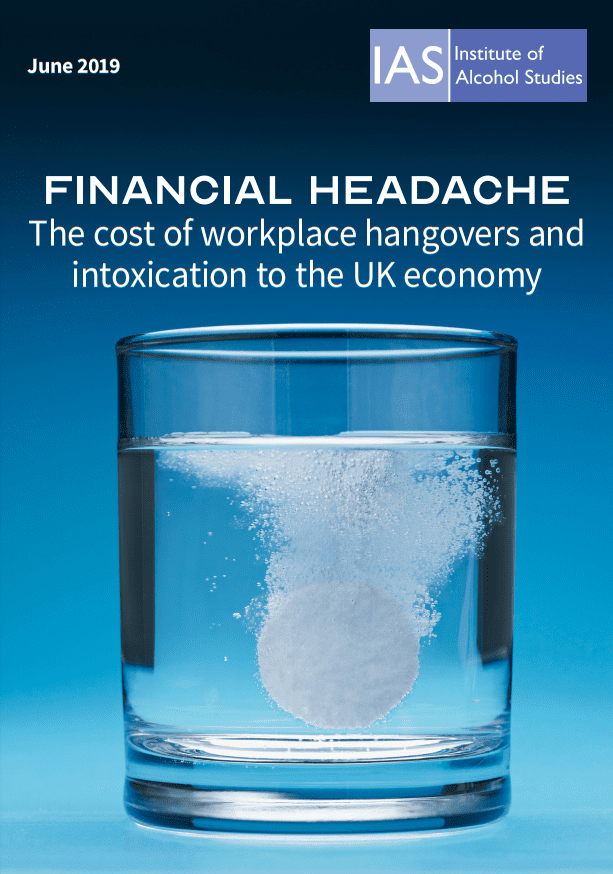UK: Staggering Costs of Alcohol at Workplace
A new report by the Institute of Alcohol Studies (IAS) reports, in the UK, as many as 89,000 people may be turning up to work hungover or under the influence of alcohol every day. The cost to the economy is up to £1.4 billion.
The findings come from a survey of 3,400 British workers that found:
- 42% had ever been to work hungover or intoxicated, and 9% had done so in the past six months.
- Working hungover or intoxicated was most common in the hospitality and leisure sector, where 52% of people had ever done so. Rates were also high in retail and construction.
- Higher earners were more likely to have gone to work hungover or under the influence. 29% of people earning under £10,000 a year had ever done so, compared to 55% of people earning over £60,000
- 36% suspected that one or more of their colleagues had been hungover or intoxicated in the last six months, reporting reduced productivity, greater stress and a negative effect on team morale.
- Respondents believed themselves to be 39% on average less effective when they were intoxicated or hungover.
Based on average labour costs, and how frequently people are impaired at work, this implies a cost to the UK economy of between £1.2 billion and £1.4 billion a year due to being impaired from alcohol at work.
According to the findings, the UK government may be underestimating the cost of alcohol to the British economy by almost 20%. The government’s official analysis excludes the impact of working intoxicated or hungover due to a lack of robust data on the issue.
The new IAS figures suggest that the government’s estimate of the economic costs of alcohol should rise from £7.3 billion to £8.7 billion.
Implications from the study
Hopefully, these results will help shift the conversation on alcohol and the economy.
Policies to reduce harmful [alcohol use], such as raising alcohol taxes and minimum unit pricing, are often resisted on the basis that they are “bad for business”. Yet our research suggests that these measures will lead to a more productive workforce – and that we will feel the benefits in our pockets,’ said Aveek Bhattacharya, policy analyst at IAS, and the author of the report, as per IAS.

